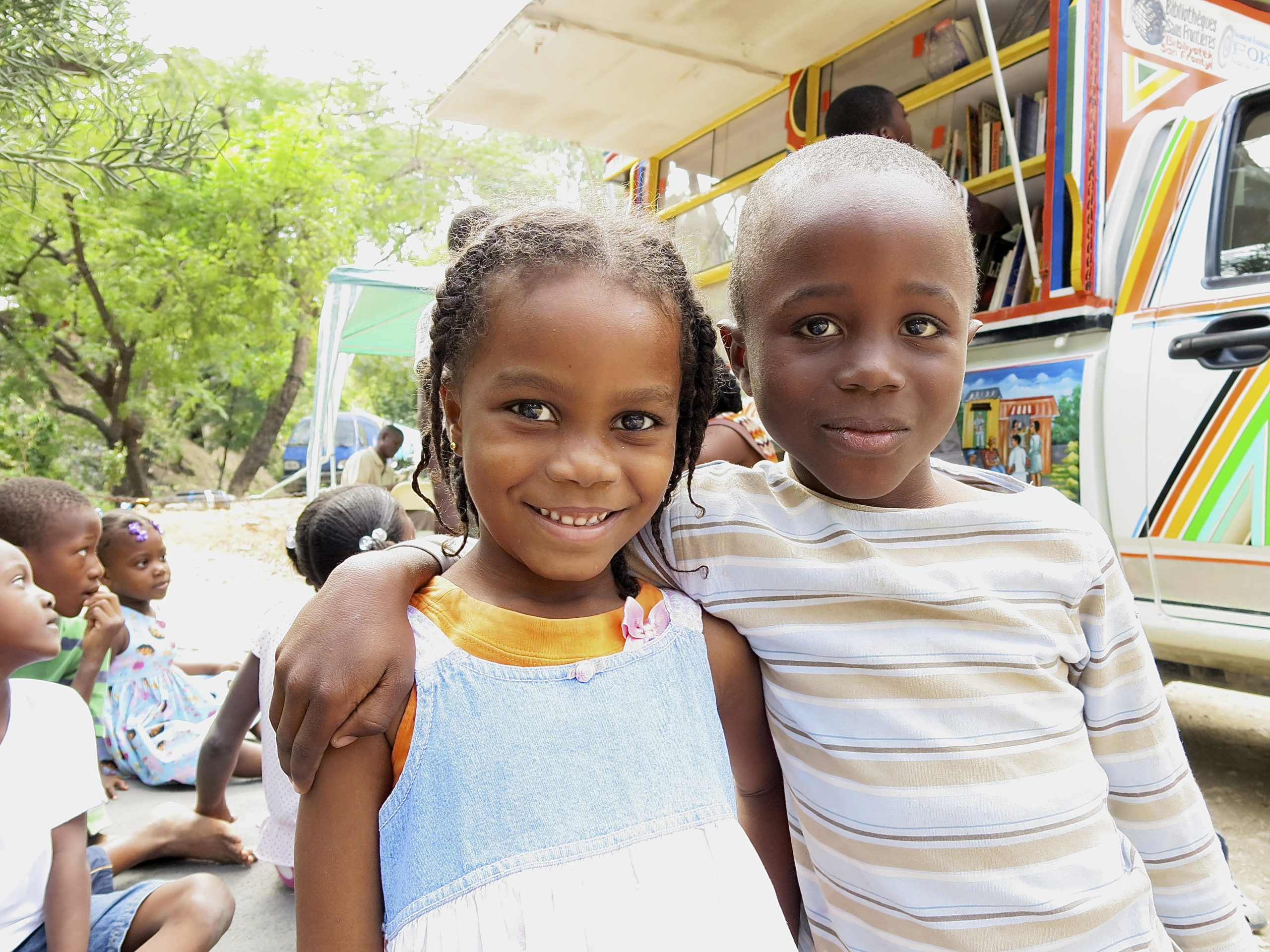In this project, BSF aims to promote access to information and education in 12 local Haitian structures (schools and civil society organizations) for the most vulnerable through offline internet solutions. The project starts in November 2021 and will last 24 months. The main objectives of the project are to equip schools and socio-cultural centres with offline internet tools giving access to contextualised and quality content, to train professionals in mediation and to set up educational and informative activities using these innovative technologies and pedagogies.
Haiti is ranked as the most vulnerable country in the Latin America and Caribbean region and the 14th most vulnerable country in the world, particularly due to its direct exposure to meteorological and seismic risks. Over the last ten years, Haiti has been affected by numerous earthquakes, the most recent of which in 2021 caused nearly 2200 deaths, hurricanes and floods with catastrophic consequences for the population. In addition, since 2018, the country has been heavily marked by political, economic and social unrest, which has repeatedly led to violent demonstrations and roadblocks. The near total paralysis of the country during these periods has hampered the functioning of essential sectors, exacerbating the already alarming humanitarian needs. The number of people in need now stands at 5.1 million out of a population of just under 12 million. The country has become even weaker since the COVID19 pandemic.
ACTION
BSF intends to deploy offline Internet solutions: “Ideas Cubes kits” to improve access to information, awareness of health issues and education for 15,000 people with a strong focus on the inclusion of women and young women who should constitute 50% of the beneficiaries. A first start-up phase will allow BSF to assess the needs for specific content, identify relevant partners, involve local authorities and stakeholders to refine the implementation phase.
This design phase will allow for the selection of content and the creation of a library of resources related to general information with a focus on health and education accessible to the target populations, in French (50%) and Creole (50%), with media content, MOOCs, videos, websites, etc.
Once the equipment has been manufactured and programmed with these resources, BSF will equip 12 partner installations with offline “Ideas Cube” servers with 10 tablets each and hosting the selected resources, to enable them to carry out quality activities on various topics related to health or education.
BSF will then ensure the follow-up of the project and the deployment of the devices as well as the constitution of a network of organizations in the cultural, educational and social field, the continuous training in animation techniques and the creation of a community of practices to ensure the mutualization and the durability of the activities.

ORGANIZATION
Bibliothèques Sans Frontières is an NGO that empowers vulnerable populations by facilitating their access to education, culture and information.
In more than 50 countries, we create innovative cultural and educational spaces that allow people affected by crisis and insecurity to learn, to be entertained, to create links and to build their future.
https://www.bibliosansfrontieres.org/
PARTNERS
The project partners will be identified during the exploratory mission planned at the launch of the project. BSF will rely on its presence between 2010 and 2015 in the country to reactivate a network of organizations active in the cultural, educational and social fields. The projects supported locally by AFD and in particular the schools will also be taken into consideration in order to identify the structures most likely to integrate the tools in their activities in a sustainable manner.

RESULTS / IMPACTS
The project aims at equipping 12 structures with offline internet solutions: Ideas Cube, at selecting more than 2000 digital contents to be integrated in the Ideas Cube and at training 15 professionals in the equipped structures.
This system will enable 15,000 people to participate in activities using these tools, 50% of whom are women.
Considered as a pilot project, a seminar will close the project in order to capitalize on its deployment and identify its best practices.
